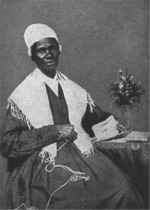The first time my son Charlie was profiled, he was nine years old. A city kid, it would be a year before he was allowed to navigate the streets unaccompanied, and even then just to go to the deli next door to our building to pick up a forgotten ingredient for dinner, a snack -- maybe a pack of Skittles -- his father or I hanging out the window and watching him every step of the way.
This particular afternoon, well over a decade ago, we were on the way home from school, me and Charlie and Henry and Dinah, making the subway trip from Midtown to Washington Heights, in a city where the neighborhood school can be at the end of a commute in a subway car shared by investment bankers hauling Underwood briefcases and nine year olds toting NY Yankee backpacks.
The kids had snacks. Chips, maybe, or Starbursts, or Skittles. Whatever it was, Charlie finished and I sent him down the subway platform to throw away his trash. Maybe 50 feet away? I never was good at distances. I probably gave him his brother and sister’s trash to toss, too … since Charlie is the oldest, the bulk of the chores have always fallen to him. Dinah was still young enough that I would never have let go of her hand on a subway platform, Henry had learned to hover comfortably below the radar, so the responsibility fell to Charlie, and I don’t remember for sure, but I am sure he looked quite grown up when I sent him down the platform.
He had just tossed the trash when the train started coming. And Charlie started jogging back towards me, a slow trot. And I saw two cops standing by the newspaper stand spot him. And what they saw was not a fancy private school third grader trotting back to his mother before the train pulled into the station. What they saw was a black youth running. Their faces reflected suspicion, and perhaps something darker. And I … raised by Charlie’s grandmother to never ever make a scene ... I yelled at full lung capacity “CHARLES! STOP RUNNING!!” The cops’ attention diverted to me, their faces relaxed, the spell was broken as I hustled the other kids to Charlie and we boarded, just another family taking the A-Train.
Within minutes, Charlie was enthralled in his Gameboy, oblivious. I was still shaking. And that night, Charlie’s father and I had to sit him (and seven year old Henry) down for The Talk. No, you may not run wild like your little white friends. Yes, if a police officer stops you, you keep your hands in sight and and your eyes on the badge. Memorize that number and keep your mouth shut and we’ll deal with your “rights” later, when you are home safe. Charlie and Henry listened the same way they listened to rules about separating the laundry before dumping it into the machine, accepting without question, breaking my heart into a billion pieces.
It is a deep, sodden sadness that curled up in my chest and has never left me, stirred by every Sean Bell, by every Ramarley Graham, by every Trayvon Martin. I try to summon feelings of anger, but they’re always overcome by this sadness. I try to muster an argument when people point out that George Zimmermann ... the man who confronted and gunned down a boy carrying Skittles and is walking free on a claim of self-defense ... that George Zimmerman is Hispanic, so he “can’t be racist.” I try to counter that one of the cops who profiled my kid was blacker than Wesley Snipes, but there is this sadness. I try to give a fuck when I read articles by well-meaning people aware of their white privilege, who point out that that they and their sons can wear all the hoodies they want and not get profiled as being anything but casual, that they understand. I’m too sad to care about their sons; this isn’t about them. I read about gun control, about stand and deliver … no, that’s Adam Ant … about “stand your ground,” and I think guns don’t kill people, walking while black kills people. Or maybe it’s Skittles. I just want it to stop.
I’m writing this partly because I think it might help the sadness to write it out, but also because friends keep asking how I’m doing with the Trayvon Martin thing, and I want to say I’m sad but it’s not about me. I keep thinking about how Trayvon’s mother feels hearing him called “every mother’s son.” Trayvon was *her* son, *her* kid who went down the road for a snack and ended up in the wrong place, the wrong time, the wrong color, calling to her for help. Walking while black.
Friday, March 23, 2012
Subscribe to:
Comments (Atom)

